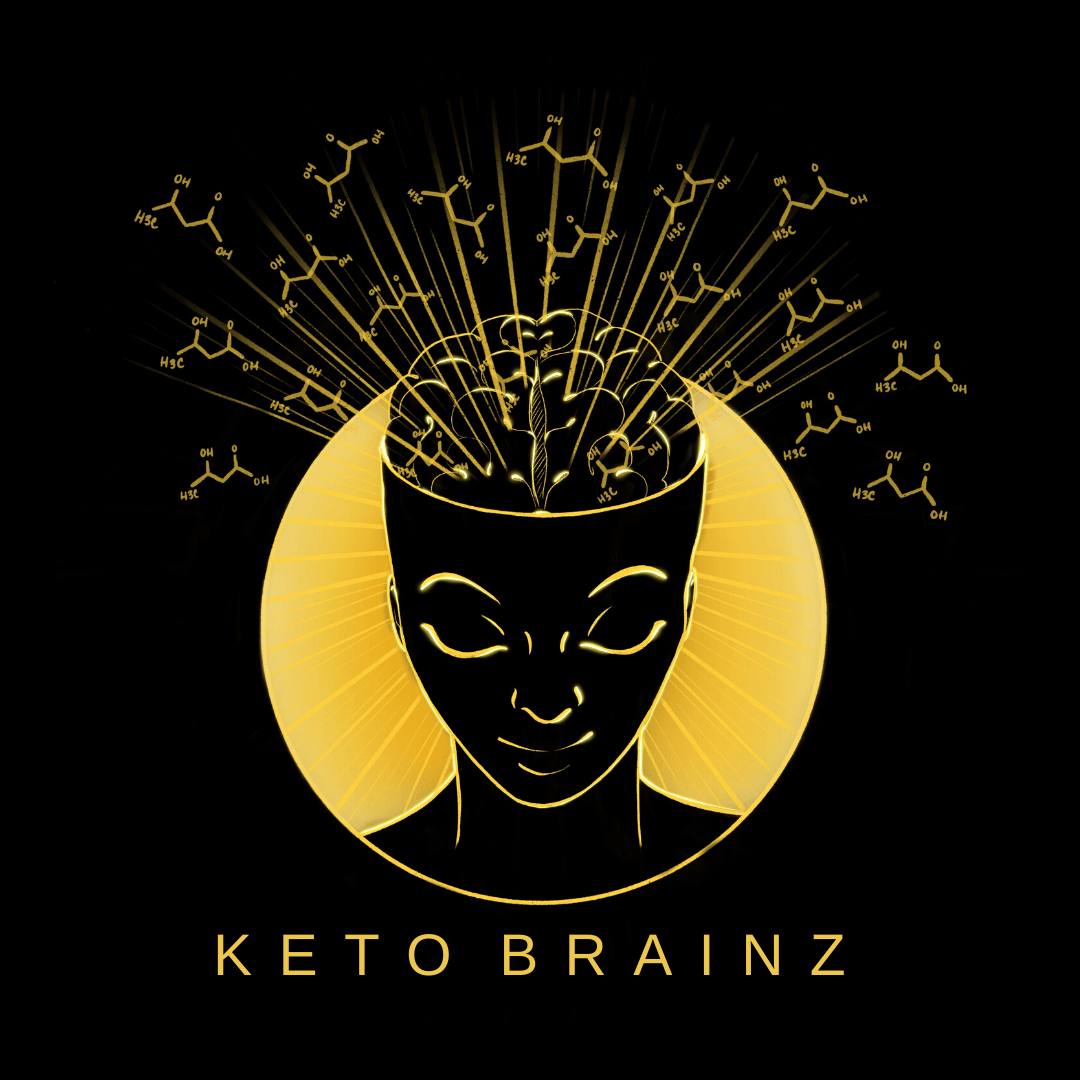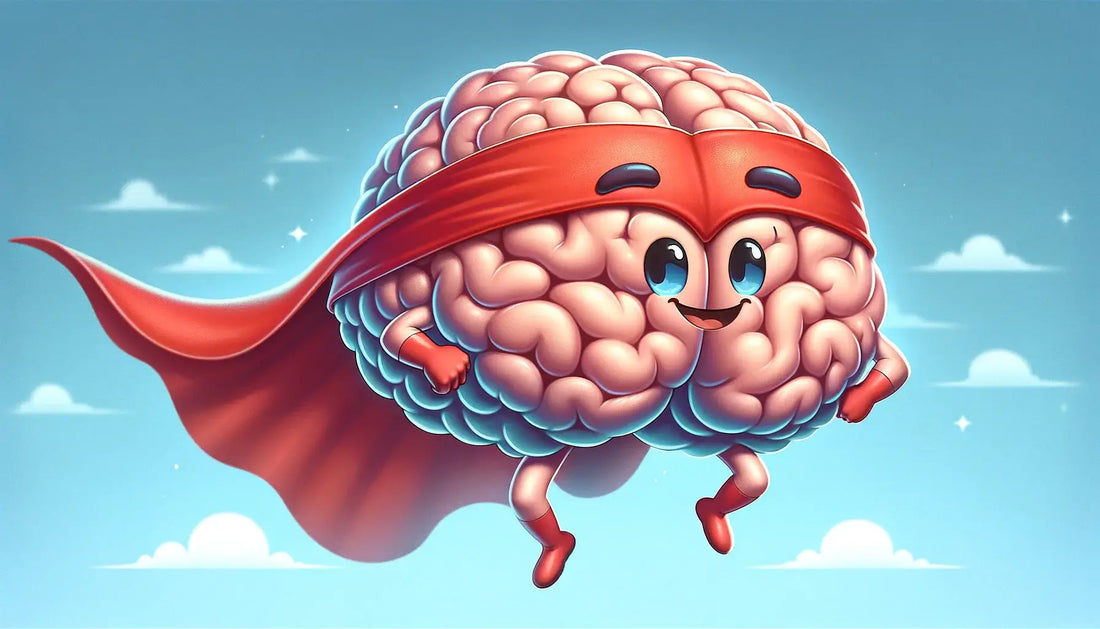Today’s world brings about a desire for increased focus on productivity and mental performance. Enter nootropics! But, what are nootropics? Nootropics, also known as smart drugs or cognitive enhancers, have sparked a wave of interest.
These substances, varying from natural supplements to synthetic compounds and prescription drugs, promise to improve various aspects of cognitive function, including memory, motivation and even creativity. But what exactly are these nootropics, and how do they work? Here we look into the heart of nootropics, exploring their different types, potential benefits, and considerations. Whether you're a curious newcomer or a seasoned user, join us as we navigate the intriguing world of cognitive enhancement.
What Are Nootropics?
Nootropics, often called smart drugs or cognitive enhancers, are substances that can improve cognitive function, particularly executive functions, like memory, creativity, or motivation. While there is a range of substances that can be considered nootropics, they can broadly be categorized into natural supplements, synthetic compounds, and prescription drugs.
The Types Of Nootropics
Plant Derived
Plant derived nootropics are substances extracted from natural sources like plants, herbs, or nutrients that are believed to enhance cognitive functions. Unlike nutraceuticals or prescription drugs, plant-derived nootropics often have a longer history of use in traditional medicine. Here are some common types:

- Ginkgo Biloba: Extracted from the leaves of the Ginkgo tree, it is thought to improve blood flow to the brain and act as an antioxidant.
- Panax Ginseng: An herb that has been used in traditional Chinese medicine since 48 B.C. and is believed to have anti-fatigue effects and improve memory and attention.
- Bacopa Monnieri: An herb used in Ayurvedic medicine, traditionally to enhance memory, learning rates, and cognitive processing.
Amino Acids and Essential Nutrients: These include compounds that are either part of the body's metabolic processes or are necessary for healthy brain function. They can also be found in our diet. Examples include:
- Omega-3 Fatty Acids: Found in high concentrations in fish oil, these fatty acids are essential for normal brain function and development. They are believed to contribute to improved thinking, memory, and reaction times.
- L-Theanine: An amino acid found in green tea, L-Theanine is thought to promote relaxation without drowsiness and improve focus and attention.
- Acetyl-L-Carnitine: An amino acid that is naturally produced in the body, it is thought to increase alertness, improve memory, and help combat age-related memory loss.
Vitamins and Minerals: Certain vitamins and minerals are critical for brain function and are considered nootropic when used to support cognitive health beyond typical nutritional needs. Yeah I know, when we think “nootropic” we think of things that more directly impact our cognitive state, but even these can be considered nootropics. These include:
- B Vitamins: Especially B6, B9, and B12, which can improve brain health, reduce fatigue, and enhance mood. Often times methylated forms are the best.
- Vitamin D: Often associated with bone health, Vitamin D is also important for brain function and mood regulation.
- Magnesium: Involved in over 300 enzymatic processes in the body, including functions that regulate brain activity and mood.
Nutraceuticals

Nutraceuticals are man-made, often times bio-identical substances. Unlike some herbal nootropics, which come from plants and herbs, nutraceuticals are lab synthesized and often have more pronounced effects.
Cholinergics: These substances affect the neurotransmitter acetylcholine, which is responsible for memory and learning. While these are in the synthetic category, the two examples below are quite safe and much less potent when compared to the other synthetic class nootropics. Some of the most common cholinergic nootropics are:
- Alpha-GPC: A compound that delivers choline to the brain, where it is used to create acetylcholine. It is used for cognitive enhancement and to increase power output in athletes.
- Citicoline (CDP-Choline): Similar to Alpha-GPC, it provides choline to the brain and is used for improving memory and cognitive function.
Racetams: This class of drugs is one of the oldest and most researched in the synthetic nootropic category. They are known for their ability to enhance memory and cognition. Common racetams include:
- Piracetam: The first of the racetam family, it is used to improve learning, memory, and brain function in the elderly or those with cognitive impairments.
- Aniracetam: Believed to be more potent than piracetam, it is used for its potential to improve memory, mood, and holistic thinking.
- Oxiracetam: Known for its stimulating properties, it is thought to enhance memory, concentration, and learning capacity.
- Phenylpiracetam: A more potent variant of piracetam with additional psychostimulatory effects, used for increasing physical performance and tolerance to cold.
Eugeroics: This class of drugs promotes wakefulness and alertness. They are typically used to treat sleep disorders but have cognitive-enhancing effects as well. The most notable is:
- Modafinil: Used to treat narcolepsy and other sleep disorders, it increases alertness and cognitive function, particularly in sleep-deprived individuals.
- Armodafinil: A more potent derivative of modafinil with similar effects but requiring a lower dosage.
- Ampakines: These affect the glutamatergic AMPA receptor and are known for their potential to enhance memory and learning by increasing synaptic transmission. Fewer studies have been conducted on these, but they are considered a promising area of cognitive enhancement research.
Others: There are many other synthetic compounds considered nootropic for their various effects on cognitive functions, mood, and energy levels, such as:
- Noopept: Similar to the racetams but reportedly up to 1000 times more potent (which is wild because racetams are already quite potent), it is used for its potential to enhance memory, learning, and focus.
- Sulbutiamine: A synthetic derivative of vitamin B1 (thiamine), used to combat fatigue and improve memory, mood, and cognitive function.
Prescription Drugs

Prescription nootropics are drugs that require a doctor's prescription and are typically used to treat specific medical conditions, but they may also enhance cognitive functions such as memory, attention, and wakefulness in individuals without these conditions. Here's an overview of some common types of prescription nootropics:
Stimulants: These are often prescribed for attention deficit hyperactivity disorder (ADHD) and include medications that can increase focus, attention, and alertness in individuals with and without ADHD. Examples include:
- Methylphenidate (Ritalin, Concerta): Used primarily to treat ADHD, methylphenidate can improve attention span, focus, and impulsivity in both children and adults.
- Amphetamines (Adderall, Vyvanse): Also used to treat ADHD, amphetamines can increase focus and attention while reducing hyperactivity and impulsivity.
Memory Enhancers: These medications are often prescribed for cognitive impairments related to Alzheimer's disease and other types of dementia. They can improve memory, cognition, and functioning in affected individuals. Examples include:
- Donepezil (Aricept): Used to treat mild to moderate Alzheimer's disease, donepezil can help improve memory, awareness, and the ability to perform daily tasks.
- Memantine (Namenda): Used to treat moderate to severe Alzheimer's disease, memantine can help slow the progression of symptoms.
My thoughts
When it comes to taking anything, it is wise to do your due diligence in making sure it’s safe for you. Absolutely read up on the various things you are considering, while ensuring that you are checking your own biases. Often when we are seeking something to improve ourselves, we have a thought, and selectively search in a way for that confirms our initial thought. A way that you can prevent this is by checking not only the potential positive effects of a substance, but also the negatives. Also, if you are taking medications already, or adhering to a very specific diet, you may also want to look into how these substances interact with what you are currently doing.
Personally, when it comes to taking nootropics, I always go the natural route first. These tend to be much safer in the long term, while also being more available. So, anything in the herbal, amino acid, vitamin/mineral, category, as well as the two lab synthesized cholinergics (alpha-GPC and CDP-choline), should be your first choice.
Nootropics likek thos ein the racetam class and prescription classes should be taken only after doing lots of research and receiving the proper professional guidance. While I have been interested in trying some of these synthetics, specifically racetams, after doing my research and consulting with peers that are medical experts, I chose to just stick to the natural options. They are more subtle, but they still work quite well for me personally. While I am not necessarily against synthetics or pharmaceuticals across the board, I think it’s good to make sustainable decisions when it comes to things that affect our neurochemistry, and this is coming from someone that was diagnosed with ADHD at a pretty young age. More on that, while I was diagnosed with ADHD, I was never medicated for it. My parents and I chose to seek out alternative options like meditation, diet, supplementation, and exercise instead, which worked quite nicely for me.
In summary, nootropics present a fascinating frontier in the quest for cognitive enhancement, spanning from ancient herbal remedies to cutting-edge pharmaceuticals. Whether derived from natural supplements, synthesized in labs, or prescribed by medical professionals, these cognitive enhancers offer various benefits. It's crucial to approach them from an informed perspective, considering both their potential upsides and downsides. Before integrating nootropics into your routine, extensive research, self-reflection, and professional consultation are advisable. Remember, the journey toward improved mental function is as much about the choices we make as it is about the substances we take. By staying informed and mindful, we can make better decisions for our cognitive health and overall well-being.
Meet the Author:
David Battisti, MScN

I am a multi-sport athlete with a fascination with nutritional sciences. I was diagnosed with severe chronic asthma at the age of 5, and over the years discovered how diet could be used to alleviate my symptoms. While I am pretty diet agnostic, I have found ways that work for me, and love to help people discover ways they can do the same! I also own a small business called Alacrity Nutrition, which seeks to help people discover what gets them excited about health. Check out my website at: Alacritynutrition.com


